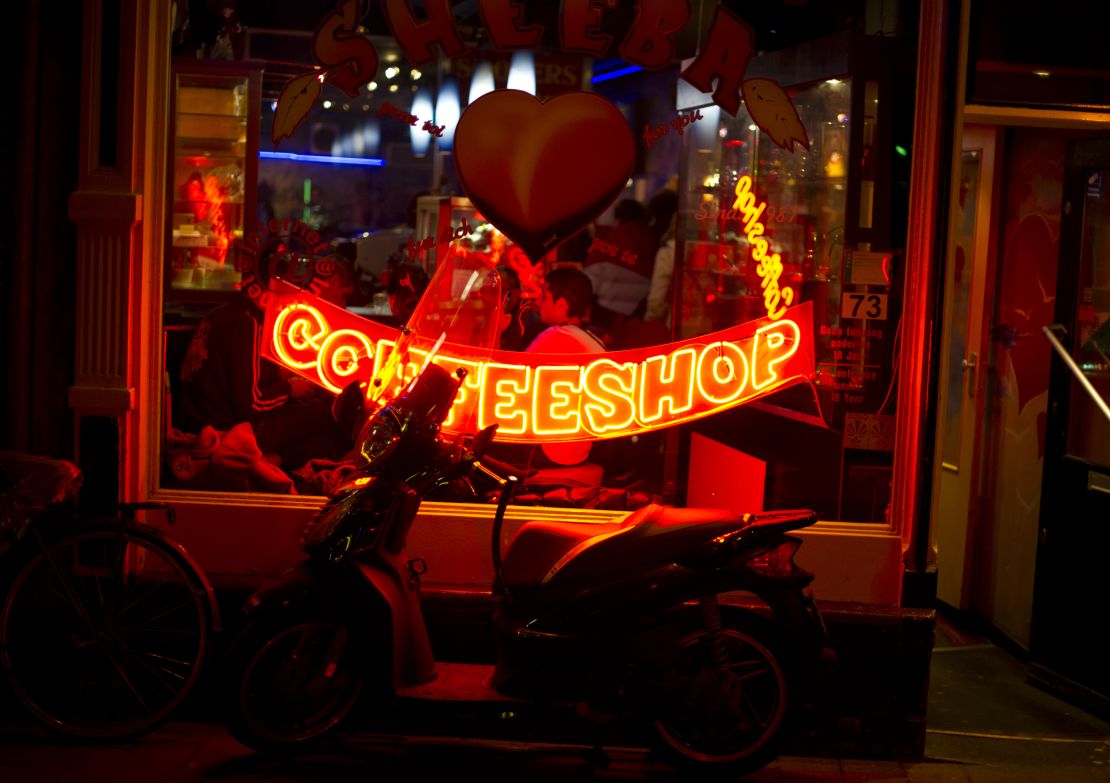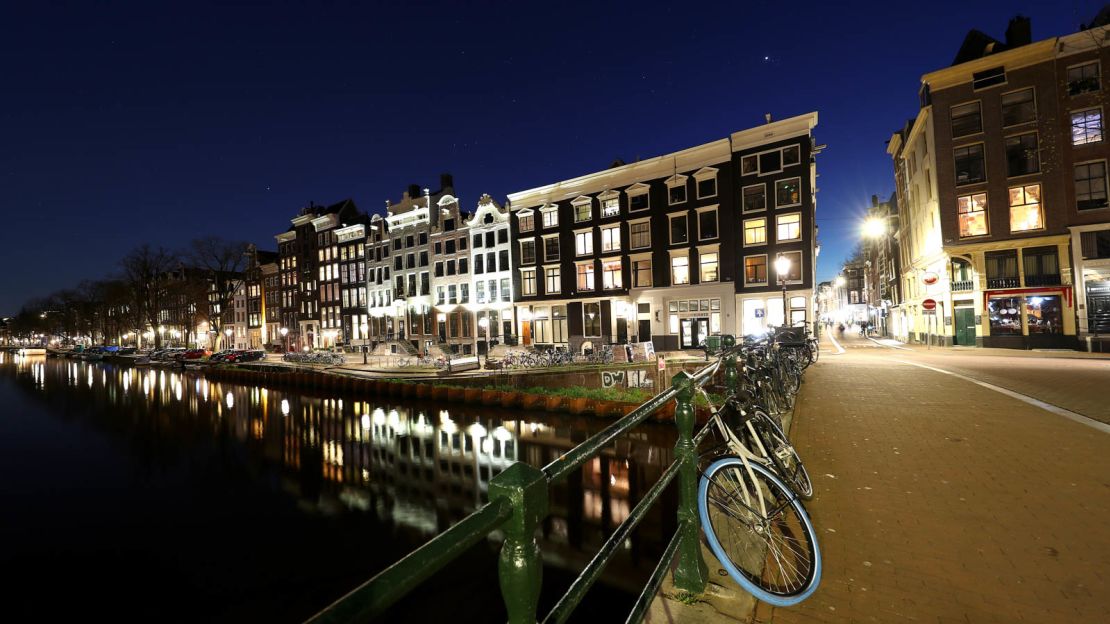When international tourists finally return to the canal-lined historic streets of Amsterdam, one of the city’s main travel attractions might be off limits.
Amsterdam Mayor Femke Halsema has proposed a new policy that would ban foreign visitors from accessing the city’s coffee shops.
There are 166 cannabis coffee shops in Amsterdam, accounting for almost 30% of the Netherlands’ coffee shops.
In a letter to councilors on January 8, Halsema proposed introducing the “resident criterion” – a policy that permits only locals to use coffee shops – with the goal of making tourism in the city more manageable and to control the coffee shop supply chain.
Halsema will discuss the measures with Amsterdam’s city council later this month.
In line with Covid-19 lockdown measures, nonessential shops, including coffee shops, are currently closed in Amsterdam, although coffee shops are able to do takeout and delivery.
The city’s website currently advises tourists not to travel to the city unless necessary, but Halsema is looking ahead to how Amsterdam might function after the Covid threat subsides.
Cannabis in the Netherlands

Different municipalities in the Netherlands have different coffee shop rules, and discussions on barring everyone except Dutch residents are not new.
This conversation became heated back in 2011 and 2012, with Amsterdam fighting back against the proposed introduction of a residents-only rule across the Netherlands’ coffee shops.
Today, this rule still exists in Maastricht, in the south of the country.
To add to the slightly confusing setup, buying cannabis from a coffee shop is legal in the Netherlands, but producing cannabis remains illegal.
Back in July 2019, Halsema wrote to councilors saying the city’s coffee shops can put “the quality of life in the city center under pressure.”
This preempted an August 2019 survey which questioned 1,100 international visitors between the ages of 18 and 35 who were visiting Amsterdam’s Red Light District, an area of the city that’s been the focus of much of Amsterdam’s most recent tourism regulations.
In this survey, referenced in Halsema’s most recent correspondence, over half of those surveyed said they chose to visit the Dutch capital because they wanted to experience a cannabis cafe.
The results were that 34% indicated they’d come to Amsterdam less often if they weren’t able to visit coffee shops, and 11% said they wouldn’t come at all.
The survey also looked into whether adding an entry fee for visits to the Wallen/Singel areas – the medieval city center that constitutes the Red Light District – would bring tourist numbers down.
But the report suggested the city’s coffee shops have a stronger appeal for international tourists than the Red Light District.
Only 1% of those surveyed mentioned window prostitution as the main reason for their visit, while, 72% said they’d visited a coffee shop during their stint in Amsterdam.
Drug trade concerns
In her recent letter, Halsema also noted concerns about the city’s coffee shops supply chain.
The police, she added, are worried about links to the hard drugs trade.
The January 8 letter sets out three steps for forging ahead with a new policy – focusing on local regulation of the cannabis market by setting up an Amsterdam coffee shop brand, limiting the ability for coffee shops to become chains and preventing visitors from outside the Netherlands to enter coffee shops.
Halsema notes that a side effect of these new measures could be a shift towards the illegal cannabis market, but she expects that to be temporary.
Continued appeal of Amsterdam

While Amsterdam’s 2019 tourist survey suggested coffee shops have a strong appeal for visitors, those surveyed said the most common reason for visiting Amsterdam isn’t the coffee shops, the Red Light District or even the city’s museums and cultural attractions.
Instead, visitors championed the pretty wholesome appeal of walking or cycling around the city.
British tourist Allan Claydon, 24, told CNN Travel in 2020 he agreed with this take – adding that he didn’t think curbing coffee shop culture would change Amsterdam’s appeal for visitors.
“I don’t think the banning of cannabis would decimate tourism,” said Claydon. “The city is also known for its culture and brilliant aesthetic.”
